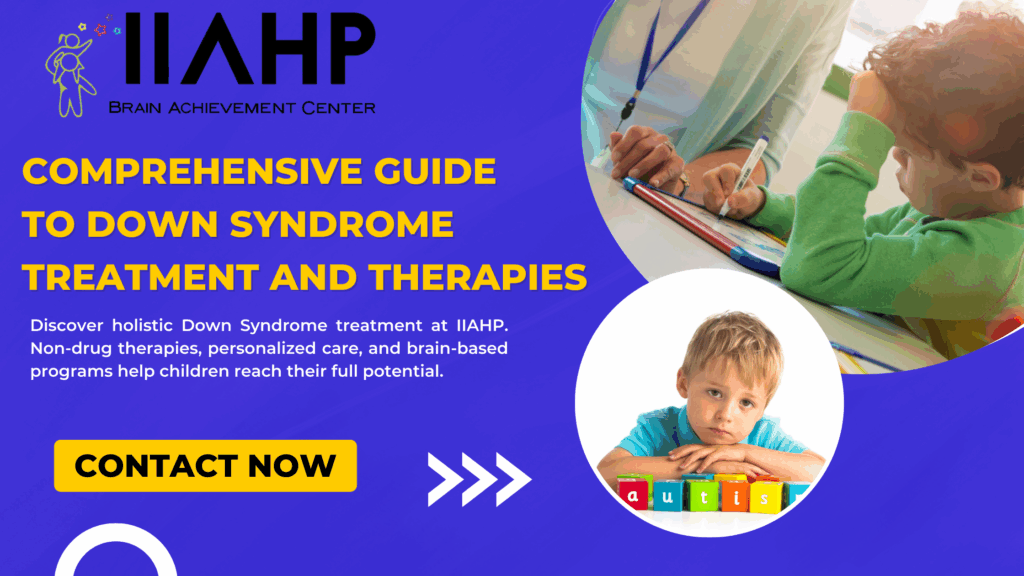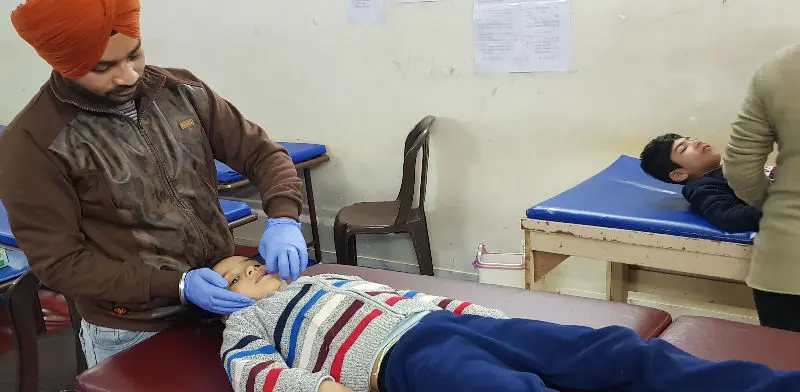Down Syndrome is a genetic condition caused by the presence of an extra chromosome 21. It affects intellectual ability, physical growth, speech, and overall development. While Down Syndrome cannot be “cured,” early and consistent therapies can significantly improve a child’s quality of life, independence, and ability to learn.
Parents often seek safe, reliable, and evidence-based therapies for their children. IIAHP provides a wide range of Down Syndrome treatment programs that focus on holistic brain and body development. IIAHP specializes in non-drug, research-based methods that help children reach their full potential.
Understanding Down Syndrome and Its Challenges
Children with Down Syndrome may experience:
- Delayed speech and language development
- Low muscle tone (hypotonia)
- Delayed motor milestones such as walking, balance, and coordination
- Learning difficulties
- Sensory processing issues
- Challenges in memory, attention, and focus
Although these challenges vary from child to child, early intervention with structured therapies has been proven to make a lasting difference.
IIAHP’s Approach to Down Syndrome Treatment
IIAHP believes in a holistic, multidisciplinary approach rather than relying on medications. Each child undergoes a personalized therapy plan designed to address developmental needs through brain-based stimulation, physical strengthening, speech improvement, and academic readiness.
Key Therapies for Down Syndrome at IIAHP
Here are some of the core therapies that form part of IIAHP’s Down Syndrome treatment programs:
1. Reflex Integration Program
Retained primitive reflexes can affect learning, coordination, and speech. Reflex integration therapy helps organize the nervous system, improving attention, motor control, and learning readiness.
2. Balance Board Exercises
These exercises improve rhythm, coordination, posture, and body awareness. For children with Down Syndrome, this therapy supports walking stability and motor planning.
3. Sensory Integration and Art Therapy
Children with Down Syndrome may struggle with sensory processing. Sensory integration therapy helps regulate responses to sounds, lights, and touch, while art therapy develops creativity and self-expression.
4. Brain Gym and Floor Program
Brain Gym movements stimulate brain function, memory, and focus. The Floor Program uses gymnastic-style exercises to strengthen muscles and improve flexibility.
5. Prism Therapy
Prism therapy helps improve vision, eye-hand coordination, and spatial awareness. This supports better reading, writing, and balance.
6 . Academic Enrichment Programs
IIAHP goes beyond therapies by including reading, math, and encyclopedia programs that help children with Down Syndrome prepare for school and improve learning abilities.
Why Parents Choose IIAHP for Down Syndrome Treatment
- Holistic Programs: All essential therapies under one roof.
- Non-Drug Approach: Focuses on natural brain development instead of medications.
- Personalized Care: Every child receives a customized therapy plan.
- Experienced Team: Therapists trained with international techniques.
Final Thoughts
Down Syndrome may present unique challenges, but with the right support, children can grow, learn, and thrive. IIAHP’s Down Syndrome treatment programs combine advanced therapies, a holistic approach, and compassionate care to help every child reach their full potential.






